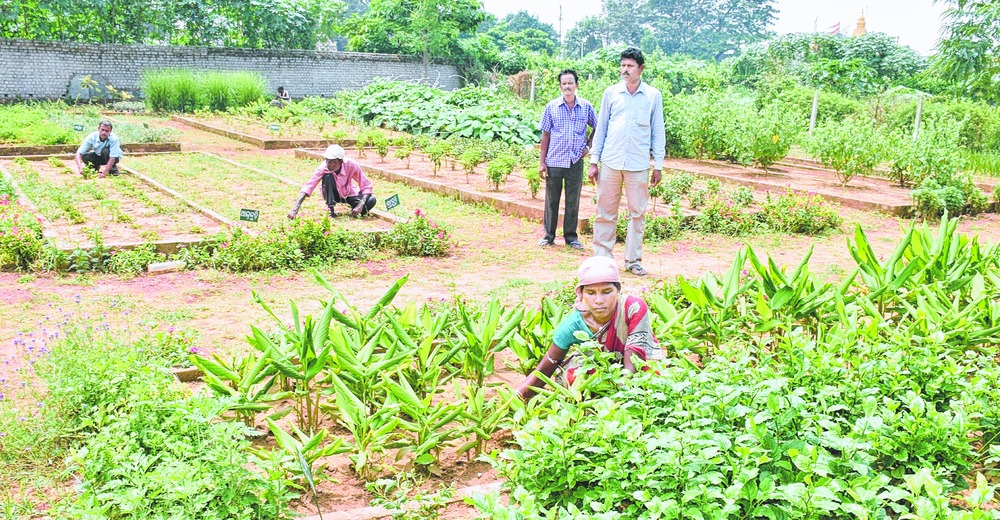
Cuttack, Sept. 16: The municipal corporation is set to add more varieties to its herbal garden.
A popular place for plant lovers, the garden has 60 varieties of rare herbs of high medicinal value. Sources said the corporation was planning to add another 10 rare varieties of plants by procuring them from various parts of the state.
Chairperson of the corporation's standing committee for park and plantations A. Sridevi told The Telegraph that the process of identifying and selecting the 10 varieties grown and found in different parts of the state had started.
There are plans to increase the number of rare plant varieties to at least 100 by next year, the chairperson said.
The corporation plans to add giloy (Tinospora cordifolia), nageswara (Mesua ferrea), pippali (Pepper longum) and vringraj (Eclipta alba) in the first phase in the next one month.
High-value plant species such as lemon grass (Cymbopogon), satabari (Asparagus racemosus), hatapocha (Coleus barbatus), asoka (Sacra asoca) and aswagandha (Withania somnifera) are already being grown and sold at the medicinal garden.
Besides, arjuna, amla, tulsi and neem are also available.
All the existing varieties are grown in 41 beds. However, there are plans to increase the number of beds to facilitate sapling generation.
"There are plans to expand the beds and area of the medicinal garden which will be done to promote treatment of common diseases through the traditional methods," Sridevi said.
The medicinal garden functions from inside the existing central nursery of the corporation after it was inaugurated on the Local Self Governance day in August last year.
The medicinal plants can be used to treat diseases such as asthma, skin and those related to the abdomen. They also help cure fever, cough and cold.
"Within a year, the medicinal garden has become successful as people have started to buy plants from here and grow them in their homes to treat various diseases," said Pradeep Prusty, an entrepreneur.
Prusty said since the medicinal plants were being sold at subsidised rates of Rs 10 each, interested people are turning up to buy neem, aloe vera, tulsi and other species. The same varieties were being sold anywhere between Rs 50 and Rs 150 in the local market and other nurseries here.
At present, around eight to 10 people are turning up at the medicinal garden every day. Many of them have demanded that the authorities should put up boards containing the botanical names of each plant.
"The civic body should also put up boards displaying the use of the plants so that people can select the ones they want," said Kedar Sahu, another visitor.
Senior civic body officials said a final decision to revise the rates would be taken up to raise the revenue from the sale of medicinal plants.











